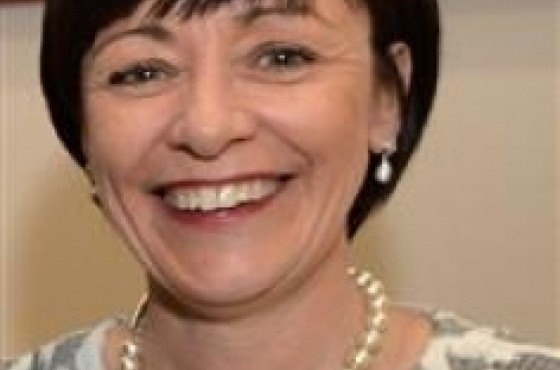Unpacking ‘A Better World’ with Nicola Brennan of Irish Aid

11 Apr 2019
The Irish government launched ‘A Better World’, its new policy for international development, in February after a substantial consultation process in 2018. It is an ambitious and wide-ranging document that sets out the Irish government’s intention to reach those furthest behind across the globe and to contribute to a more equal, peaceful and sustainable world by 2030.
Eager to understand more about how Ireland plans to achieve those ambitions and what this means for civil society in Ireland and abroad, Dóchas invited Nicola Brennan, the Policy Director in the Development Cooperation and Africa Division of the Department of Foreign Affairs and Trade, to unpack the new policy for our members at an event on 27 March.
Here are four key takeaways from Nicola:
What’s different from Ireland’s previous International Development Policy?
The policy should be seen as a whole-of-Government document, with the intention that all parts of government take ownership of Ireland’s international development cooperation programme. To emphasise this, Irish Aid is not mentioned once in the policy.
While the intention to reach the United Nations target of allocating 0.7% of Gross National Income (GNI) for Official Development Assistance (ODA) has long been signaled, there is significant commitment across government, including by the Taoiseach, to increase funding year-on-year. We are very clear on what the figures need to look like and they are significant.
Europe and a commitment to multilateralism are central to the new policy, not least because of the reform of EU Development Instruments and EU policy developments. We know that Ireland’s financial contributions to the EU development and humanitarian financing instruments will increase, to over 30% of ODA, but we also want to play a more active and vocal role around that table, and globally, in order to influence and shape policy.
A key shift with this policy is also the deliberate intent to focus on four policy priorities – gender equality, reducing humanitarian need, climate action and governance. Delivering on these priorities will define Ireland’s leadership and influence, inform our strategic choices around partnerships and interventions, and guide how we implement our development policy in order to ‘Reach the Furthest Behind First’. We will have to be better at targeting and monitoring, understanding contexts and recognising that reaching the furthest behind first will be costly and demand more risk.
It is also important to note that humanitarian strategy and response are now interwoven into the new policy, bringing greater coherence between all priority and focus areas.
What needs to be done differently?
There needs to be an increase in capacity within the Department, but we also need to diversify skill sets across all areas of government.
As such, there needs to be a sharp focus on coordination across government, requiring policy coherence and the ability to address difficult issues. There will also be greater engagement with diaspora groups and Irish Embassies to further investment and trade. And there are plans to develop a ‘talent pipeline’ of Irish graduates and experts.
We know we also need to do more in the area of public engagement to bring the public along on a journey where they feel real ownership of Ireland’s international development cooperation programme.
The policy will mean deepening engagement across Western Africa and Sub-Saharan Africa, while also looking at how to engage with countries in the Middle East. The opening of our embassy in Jordan, for example, is an exciting prospect. We also want to work more at regional levels, so we have recently joined the African Development Bank, and are looking to expand our engagement with the Asian Development Bank, particularly to address climate risk in the Pacific Islands.
Another area of change will be our investment in research and innovation, through traditional partnerships, but also providing a space for private sector engagement through knowledge transfers and expertise.
Where does civil society feature in the new approach?
Civil society is seen as a key partner in the implementation of the policy and is needed more than ever in many parts of the world where the enabling environment for civil society is shrinking. However, we will not be setting specific financial targets for support to any of the partners we fund as it is more about quality and flexibility to get the job done. There will be, however, a sharper focus on the quality of funding, with high expectations on partners to ensure strong due diligence.
The Irish government also remains as committed as ever to working on the issue of civil society space. We want to continue to champion that, and be a leader on this across the globe. Colleagues within the Civil society Unit are strategising on what this needs to look like, with some exciting plans ahead.
So, what happens next?
The priority for my team at the moment is the dissemination of the policy – internally and externally, including at the European Development Days. We will also be launching the policy with partners in Geneva, Rome, Washington, New York and in Sub-Saharan Africa at the Heads of Mission meeting.
We know we also need to work on a strong implementation framework, which can be measured and monitored, and that needs to include some prioritisation. That will be a difficult task, but essential. There are already some quick wins, such as developing a gender equality strategy, a multilateral strategy, and a review of the Africa strategy, which are all underway. And there are some exciting new initiatives provided for in the policy and in the pipeline, including an Ocean Initiative, and a Women’s Economic Empowerment and Sexual and Reproductive Health and Rights Initiative.
The hard work begins now.
The opinions expressed in this blog are the author's own and do not necessarily reflect the views of Dóchas.